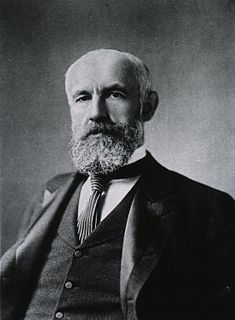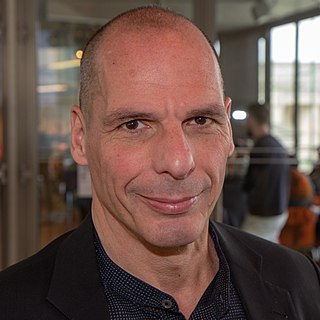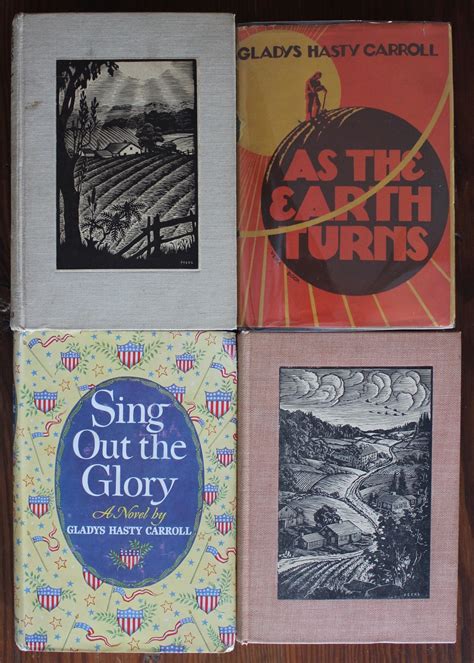A Quote by G. Stanley Hall
The man of the future may, and even must, do things impossible in the past and acquire new motor variations not given by heredity.
Related Quotes
And we should forget, day by day, what we have done; this is true non-attachment. And we should do something new. To do something new, of course we must know our past, and this is alright. But we should not keep holding onto anything we have done; we should only reflect on it. And we must have some idea of what we should do in the future. But the future is the future, the past is the past; now we should work on something new.
It seems to me that the dedication of a library is an act of faith. To bring together the resources of the past and to house them in buildings where they will be preserved for the use of men and women in the future, a nation must believe in three things. It must believe in the past. it must believe in the future. It must, above all, believe in the capacity of its own people so to learn from the past that they can gain in judgment in creating their own future.
The Past is dead, and has no resurrection; but the Future is endowed with such a life, that it lives to us even in anticipation. The Past is, in many things, the foe of mankind; the Future is, in all things, our friend. In the Past is no hope; The Future is both hope and fruition. The Past is the text-book of tyrants; the Future is the Bible of the Free. Those who are solely governed by the Past stand like Lot's wife, crystallized in the act of looking backward, and forever incapable of looking before.
I shall borrow two words used for a slightly different purpose by the great demographer Alfred Lotka to distinguish between the two systems of heredity enjoyed by man: endosomatic or internal heredity for the ordinary or genetical heredity we have in common with animals; and exosomatic or external heredity for the non-genetic heredity that is peculiarly our own - the heredity that is mediated through tradition, by which I mean the transfer of information through non-genetic channels from one generation to the next.
There is here, what is not in the old country. In spite of hard, unfamiliar things, there is here - hope. In the old country, a man can be no more than his father, providing he works hard. If his father was a carpenter, he may be a carpenter. He many not be a teacher or a priest. He may rise - but only to his father's state. In the old country, a man is given to the past. Here he belongs to the future. In this land, he may be what he will, if he has the good heart and the way of working honestly at the right things.
Keep in mind how fast things pass by and are gone - those that are now, and those to come. Existence flows past us like a river; the "what" is in constant flux, the "why" has a thousand variations. Nothing is stable, not even what's right here. The infinity of past and future gapes before us - a chasm whose depths we cannot see.
If history is to be creative, to anticipate a possible future without denying the past, it should, I believe, emphasize new possibilities by disclosing those hidden episodes of the past when, even if in brief flashes, people showed their ability to resist, to join together, occasionally to win. I am supposing, or perhaps only hoping, that our future may be found in the past's fugitive movements of compassion rather than in its solid centuries of warfare.
If abuses are destroyed, man must destroy them. If slaves are freed, man must free them. If new truths are discovered, man must discover them. If the naked are clothed; if the hungry are fed; if justice is done; if labor is rewarded; if superstition is driven from the mind; if the defenseless are protected, and if the right finally triumphs, all must be the work of man. The grand victories of the future must be won by man, and by man alone.
We who run in the way of Love must never torment ourselves about anything. If I did not suffer minute by minute, it would be impossible for me to be patient; but I see only the present moment, I forget the past, and take good care not to anticipate the future. If we grow disheartened, if sometimes we despair, it is because we have been dwelling on the past or the future.
Life is the future, not the past. The past can teach us, through experience, how to accomplish things in the future, comfort us with cherished memories, and provide the foundation of what has already been accomplished. But only the future holds life. To live in the past is to embrace what is dead. To live life to its fullest, each day must be created anew.
All things that are, are ours. But we must care. For if we do not care, we do not exist. If we do not exist, then there is nothing but blind oblivion. And even oblivion must end someday. Lord, will you grant me just a little time? For the proper balance of things. To return what was given. For the sake of prisoners and the flight of birds. Death took a step backwards. It was impossible to read expression in azrael's features. Death glanced sideways at the servants. Lord, what can the harvest hope for, if not for the care of the reaper man?
Regular crises perpetuate the past by reinvigorating cycles which started long ago. In contrast, (capital-C) Crises are the past's death knell. They function like laboratories in which the future is incubated. They have given us agriculture and the industrial revolution, technology and the labour contract, killer germs and antibiotics. Once they strike, the past ceases to be a reliable predictor of the future and a brave new world is born.
Today we must abandon competition and secure cooperation. This must be the central fact in all our considerations of international affairs; otherwise we face certain disaster. Past thinking and methods did not prevent world wars. Future thinking must prevent wars...The stakes are immense, the task colossal the time is short. But we may hope- we must hope- that man's own creation, man's own genius, will not destroy him.






































